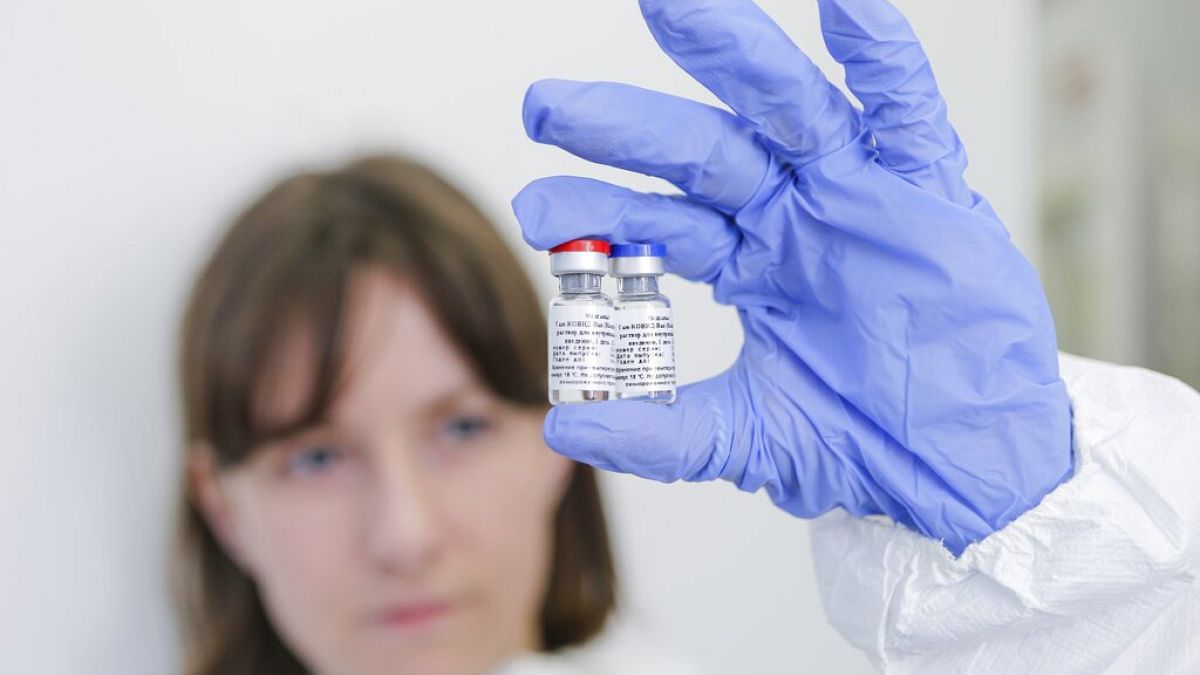Our bureau in Brussels takes a look at some of the key stories in Europe this week.
The already strained relations between the West and Russia got worse this week.
Russian opposition leader Alexei Navalny was poisoned with a Soviet-era nerve gas, according to the German government.
It said that laboratory tests confirmed what doctors at Berlin's Charité hospital had indicated last week.
German Chancellor Angela Merkel has now hardened her tone towards Moscow: Navalny was the victim of a crime and meant to be silenced, she said, bluntly.
There were now serious questions regarding this attempted murder that only the Russian government can and must answer, Merkel added.
But it must be frustrating for Merkel that Putin has shown no sign of flexibility so far.
The thing is that whatever sway she might have had over Putin appears to have largely faded.
And with Merkel’s long tenure in power coming to an end next year, Putin may well feel emboldened to keep doing what he wants and to ignore her.
Vaccine race to the bottom
The West's trust in Putin is close to zero.
We've seen this again most recently in the reactions to Russia's fast-tracked coronavirus vaccine.
Western experts immediately voiced scepticism, questioning its safety and efficacy.
The episode illustrated a worrying trend, though: when it comes to the development of a vaccine, there is no international cooperation.
Instead, it's “everybody for themselves”: Putin does it, Trump does it, and the Chinese do it.
At least the European Union is trying to be more inclusive.
This week EU Commission President Ursula von der Leyen announced the contribution to a WHO-led initiative to secure equitable access to a future vaccine around the world, especially for poorer countries.
Currently, there is no international commitment to distribute future vaccines globally in a coordinated and rational way. Instead, we're seeing some sort of "my-country-first" approach.
Thomas Bollyky, director of the Global Health Program at the Council on Foreign Relations in Washington says there are three consequences of this approach.
"The first is that this is a virus, of course, that knows no borders. So if we take a position on the vaccine that is nationalist, that is limited to countries, we will be unable to stop the pandemic from spreading.
"The second is economic. Every country, even countries that have done well in fighting this pandemic have suffered the economic consequences, because we're all interconnected, all our economies are interconnected.
"The third is geo-political. If wealthy nations hoard early supplies of vaccines and are unwilling to share, that means other nations will wait, there will be consequences of that and will make it harder to cooperate on other global challenges in the future."
This could mean there is a risk that this global dysfunction will prolong the pandemic. If a country chooses to vaccinate its own population, that means health workers or the most vulnerable populations in other nations won't have access to the vaccine.
Nobody knows yet whether the first proven vaccine will work best. Over time, more global input might be needed to improve subsequent vaccines.
"There is likely to be more than one vaccine that emerges from this process. Right now there are eight in late-stage clinical trials," explains Bollyky.
"The early vaccines are not likely to be the most effective. So if the United States or another European nation has access to an early vaccine, that doesn't mean they will have access to a later vaccine that is most effective."
For Bollyky, the world is running out of time to reverse vaccine nationalism.
The big question is, of course: if a global pandemic that has infected millions across borders can't bring countries together, what can?
Remembering Charlie
The trial over the 2015 terror attacks in Paris opened this week.
Twelve people were killed in a daytime assault on the Charlie Hebdo offices, a satirical magazine, and in two related-attacks five more people were shot dead.
The onslaught by jihadist militants had traumatised France – but also strengthened the country's resolve not to budge when freedom of the press and other freedoms are on the line.
French President Emmanuel Macron speaking in Lebanon this week said: “From where I stand, I am here to protect all these freedoms so it's not up to me to qualify the choices of journalists, I can only say that in France, we are allowed to criticise governments, presidents, and to be blasphemous."
